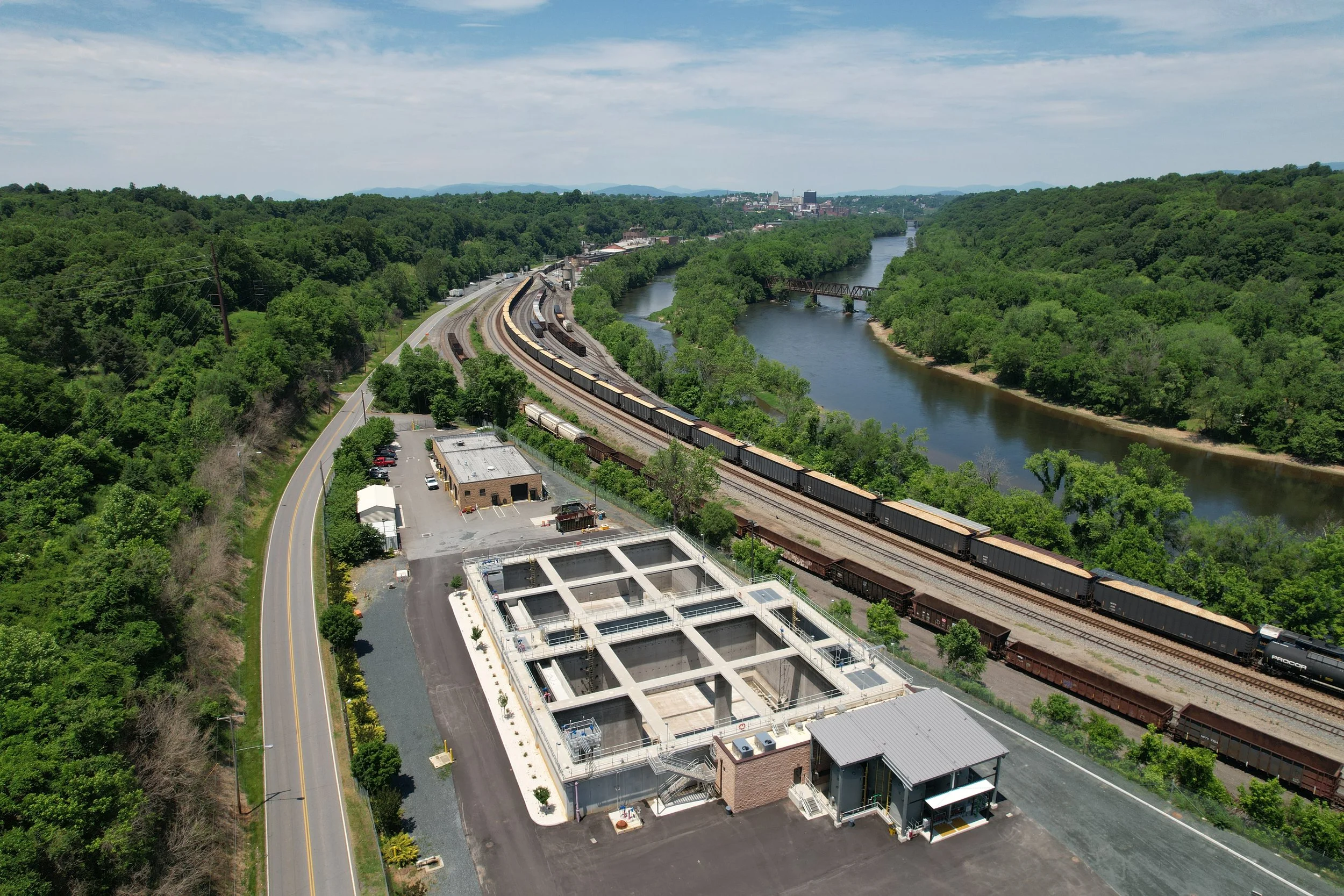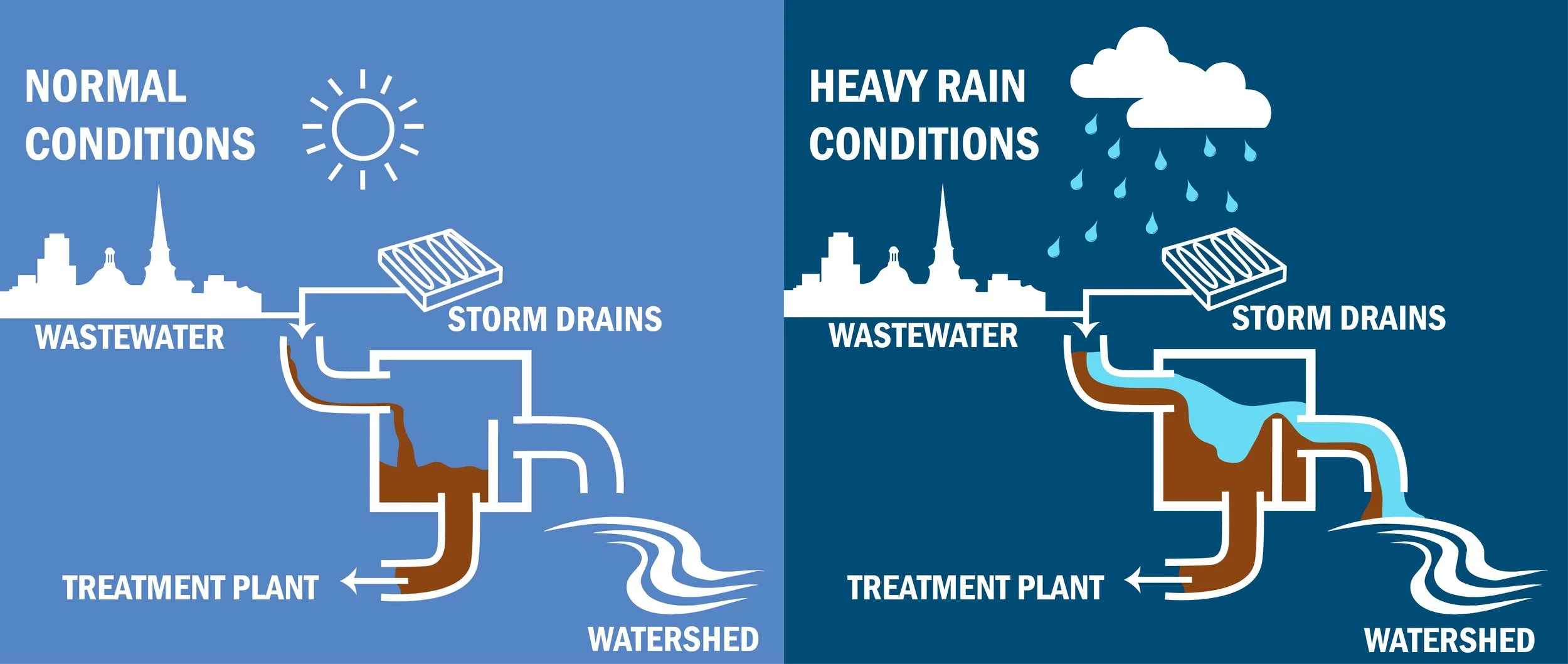
Lynchburg’s CSO History
Since 1979, the City of Lynchburg has eliminated 115 of the 132 original combined sewer overflow points in the city, resulting in 93% less wastewater entering our streams and the James River.
Overview
Lynchburg Water Resources operates a wastewater collection system consisting of many miles of "combined" sewers. Approximately 4% of the City uses this combined collection system that carries both stormwater and wastewater to be processed and treated at the regional wastewater plant.
Combined sewer systems are designed to collect stormwater and wastewater in the same pipe. During dry weather, these pipes transport all of the wastewater to the Lynchburg Regional Water Resource Recovery Facility (WRRF), where it is treated to strict standards before being discharged to the James River.
During periods of intense rainfall, however, the combined wastewater and stormwater volume in our combined sewer system can exceed the pipe's capacity. Dating back to the 1800s, our system occasionally overflows and discharges water to nearby streams or the James River. These overflows, called combined sewer overflows (CSOs), contain not only stormwater but also untreated wastewater and debris collected from the streets.
Why CSOs are a concern
CSOs affect our waterways by:
Discharging material high in bacteria into our streams and the James River;
Adding too much organic material to our rivers and streams, thus contributing to low dissolved oxygen levels in the water. Low oxygen levels lead to potential stress/death for fish and other organisms that live in our watersheds;
Polluting our rivers and streams with debris such as plastic bottles, styrofoam, and other trash.
CSO History
From 1979 until 2014, the City of Lynchburg worked to separate all combined sewer pipes into two different pipes: one for wastewater and one for stormwater. During these years, over $230 million was spent to close 112 overflow points where the combined sewage and rainwater discharged into streams and the James River. The program successfully reduced overflow volume by 80%.
In 2015, the City of Lynchburg implemented a new Long Term Control Plan (LTCP) to more effectively and efficiently address the remaining combined sewer system. One major achievement in the plan was the construction of a 4 million gallon CSO storage tank at the Water Resource Recovery Facility, which has the capability of processing as much as 80 million gallons of wastewater for an extended period of time.
LYH Beyond, the Blackwater CSO Tunnel, is the next major project to even further reduce overflows in the city. The nearly mile-long, 12-foot in diameter storage tunnel will hold up to 4.7 million gallons of combined sewer and stormwater during intense rainfalls, estimated to reduce the number of overflows from six to two at the CSO 52 overflow point along the Point of Honor Trail on the Blackwater Creek.


